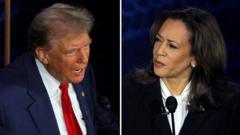Trump's memorandum cited national interest as the reason behind his decision, stating, “It is no longer in the national interest for the following individuals to access classified information.” Among those affected were high-profile Democrats, including current and former officials who have challenged Trump politically as well as some of his former aides who testified against him during impeachment proceedings. The action raises questions about the use of security clearances as a form of political leverage, particularly as it curtails access to government facilities for a range of individuals who previously held significant positions.
The order notably extends to Joe Biden’s appointees, such as Secretary of State Antony Blinken and National Security Advisor Jake Sullivan, both of whom will now lack access to classified briefings and materials. Trump also revoked clearances for Republican critics like former Representatives Liz Cheney and Adam Kinzinger, who played key roles in investigating the January 6, 2021, Capitol attack. Additionally, legal adversaries of Trump, such as New York Attorney General Letitia James and Manhattan District Attorney Alvin Bragg, are included in the list, highlighting the broader implications of this order on ongoing litigations against him.
The revocation of these clearances is largely seen as symbolic for many named, as it may severely limit their ability to engage with classified government operations or reviews effectively. Critics, however, argue that the move is emblematic of politically motivated actions that threaten the integrity of the system designed to safeguard national interests. Reactions have poured in from various individuals named in the order, with several dismissing the revocation and promising to continue their legal challenges against Trump and his administration.
This order follows Trump's earlier announcement revoking Joe Biden's security access and echoes his past actions where he had stripped clearance from more than 40 former intelligence officials who he believed had interfered in the 2020 elections. In the midst of ongoing political tensions, this latest decision serves to highlight the divisions within the political landscape and the contentious relationship between Trump and his opponents as the 2024 election cycle unfolds.
The order notably extends to Joe Biden’s appointees, such as Secretary of State Antony Blinken and National Security Advisor Jake Sullivan, both of whom will now lack access to classified briefings and materials. Trump also revoked clearances for Republican critics like former Representatives Liz Cheney and Adam Kinzinger, who played key roles in investigating the January 6, 2021, Capitol attack. Additionally, legal adversaries of Trump, such as New York Attorney General Letitia James and Manhattan District Attorney Alvin Bragg, are included in the list, highlighting the broader implications of this order on ongoing litigations against him.
The revocation of these clearances is largely seen as symbolic for many named, as it may severely limit their ability to engage with classified government operations or reviews effectively. Critics, however, argue that the move is emblematic of politically motivated actions that threaten the integrity of the system designed to safeguard national interests. Reactions have poured in from various individuals named in the order, with several dismissing the revocation and promising to continue their legal challenges against Trump and his administration.
This order follows Trump's earlier announcement revoking Joe Biden's security access and echoes his past actions where he had stripped clearance from more than 40 former intelligence officials who he believed had interfered in the 2020 elections. In the midst of ongoing political tensions, this latest decision serves to highlight the divisions within the political landscape and the contentious relationship between Trump and his opponents as the 2024 election cycle unfolds.

















